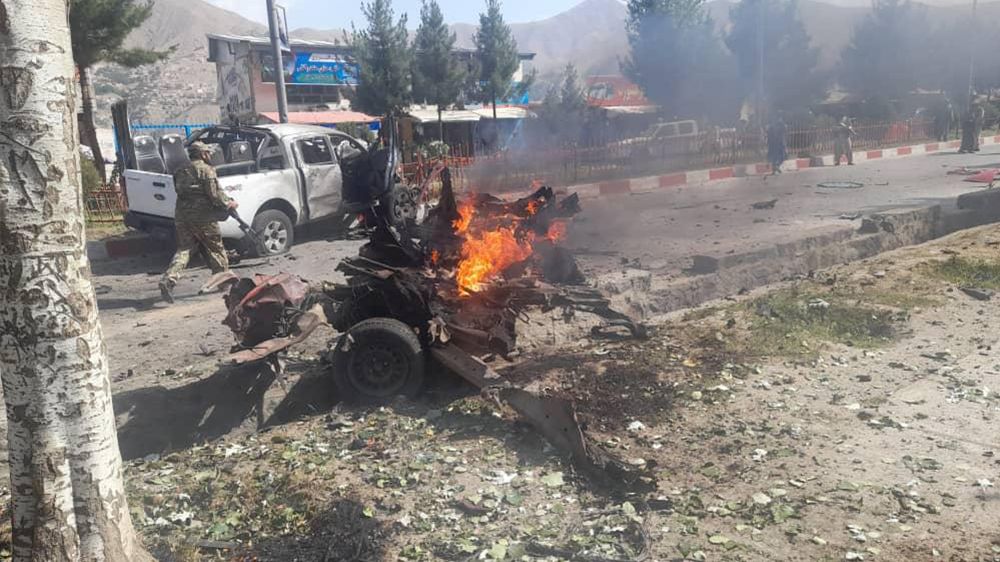Badakhshan’s Bloody Attacks; Failure in providing Security
The escalating violence in Afghanistan, exemplified by the recent car bombings in the Badakhshan province, underscores the Taliban’s failure to secure the country and uphold its promises of stability.

In a chilling display of violence, Nisar Ahmad Ahmadi, the acting governor of the northeastern Afghan province of Badakhshan, was killed in a car bombing on June 6th, 2023. This gruesome incident, claimed by the Islamic State of Iraq and the Levant (ISIL) group, is a stark reminder of the ongoing struggle that Afghanistan’s ruling Taliban government is facing in maintaining law and order and establishing its authority in the country.
These incidents are part of a series of deadly attacks against key Taliban officials. The Islamic State-Khorasan (IS-K), the Afghan branch of the Islamic State, has claimed responsibility for many of these assaults. The Taliban have been carrying out raids against IS-K operatives, yet the attacks continue, suggesting that the group’s counter-terrorism efforts are insufficient. Prior to the recent car bombing, the province’s police chief had also been killed in a similar attack, which was also claimed by ISIL, in December 2022. Furthermore, an explosion inside a mosque during a funeral service for Ahmadi claimed at least 19 lives, including that of the former Taliban security commander in the city of Baghlan.
Since the Taliban resumed power in Afghanistan in August 2021, ISIL has emerged as a significant threat to the Taliban’s rule. The militant group has targeted Taliban administration officials, killing and wounding hundreds of people, including foreigners and members of the minority Hazara community, in a bid to undermine the Taliban government.
These incidents highlight the growing internal security challenges facing the Taliban administration, which has been trying to establish its authority and control in a country that has seen years of war and conflict. Although the Taliban has been carrying out raids against members of ISIL, it has so far failed to quell the violence and secure the safety of its officials and the broader population.
The recent string of violent incidents begs the question: Is the Taliban failing to govern effectively? The Taliban’s inability to ensure the safety of its own officials from attacks by the ISIL and other extremist groups indicates a lack of control and raises serious doubts about its ability to govern a country that has been ravaged by conflict and is in dire need of stability and security.
Such a state of affairs can have dire implications. Firstly, it raises the specter of a protracted conflict within the country, with groups like IS-K attempting to destabilize the Taliban’s rule. Secondly, it jeopardizes any efforts towards reconstruction and development in a country already ravaged by years of conflict. Finally, the continued instability may potentially trigger a larger humanitarian crisis, as civilians bear the brunt of the escalating violence.
While the Taliban appears to have taken some steps in curbing illicit activities such as opium cultivation, the escalating violence and targeted assassinations suggest that the administration is struggling to maintain law and order. This raises concerns about the future of Afghanistan under the Taliban rule and the potential for continued instability and violence.
The impact of the Taliban’s struggles extends beyond Afghanistan’s borders. The Badakhshan province, in particular, shares a border with China, Pakistan, and Tajikistan. The continued violence and the possibility of the region becoming a hotbed of extremist activities can potentially pose significant security challenges for these neighboring countries.
Furthermore, the rise of groups like IS-K and the Taliban’s inability to curb their activities could trigger wider geopolitical repercussions. According to Army General Michael Kurilla, head of the U.S. Central Command, IS-K could potentially launch an attack against U.S. or Western interests from Afghan bases before the year is out.
The escalating violence in Afghanistan, exemplified by the recent car bombings in the Badakhshan province, underscores the Taliban’s failure to secure the country and uphold its promises of stability. The potential consequences, from sustained internal conflict to regional instability, require urgent attention from the international community. It remains to be seen whether the Taliban can adapt its strategies to effectively combat these challenges or whether Afghanistan will continue to be a hub of conflict and instability.